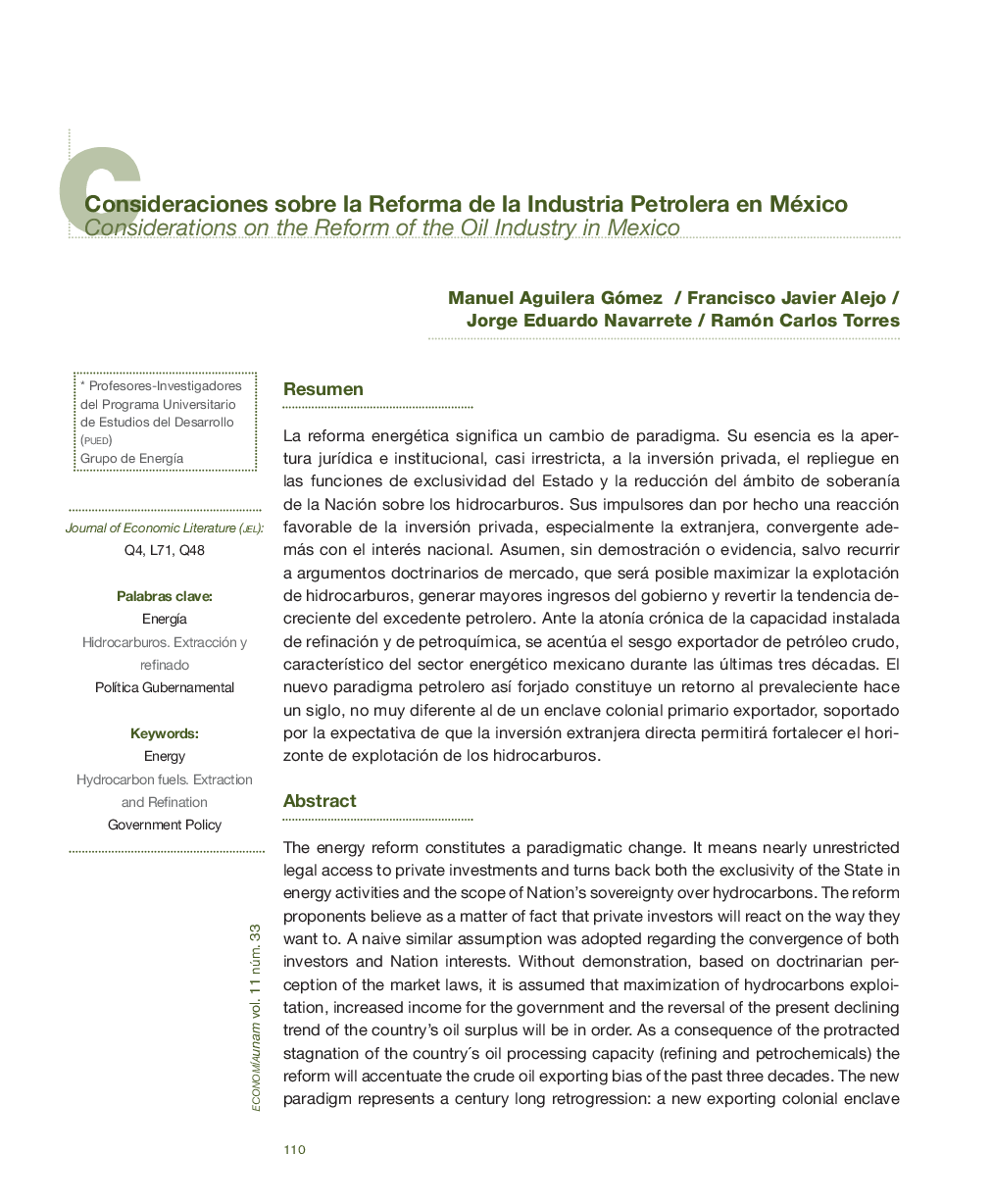| Article ID | Journal | Published Year | Pages | File Type |
|---|---|---|---|---|
| 7346158 | Economía UNAM | 2014 | 28 Pages |
Abstract
The energy reform constitutes a paradigmatic change. It means nearly unrestricted legal access to private investments and turns back both the exclusivity of the State in energy activities and the scope of Nation's sovereignty over hydrocarbons. The reform proponents believe as a matter of fact that private investors will react on the way they want to. A naive similar assumption was adopted regarding the convergence of both investors and Nation interests. Without demonstration, based on doctrinarian perception of the market laws, it is assumed that maximization of hydrocarbons exploitation, increased income for the government and the reversal of the present declining trend of the country's oil surplus will be in order. As a consequence of the protracted stagnation of the country's oil processing capacity (refining and petrochemicals) the reform will accentuate the crude oil exporting bias of the past three decades. The new paradigm represents a century long retrogression: a new exporting colonial enclave justified by the assumption that the presence of foreign investment will automatically translate into a widened hydrocarbons horizon for the country.
Related Topics
Social Sciences and Humanities
Economics, Econometrics and Finance
Economics and Econometrics
Authors
Manuel Aguilera Gómez, Francisco Javier Alejo, Jorge Eduardo Navarrete, Ramón Carlos Torres,
